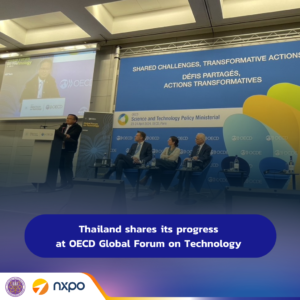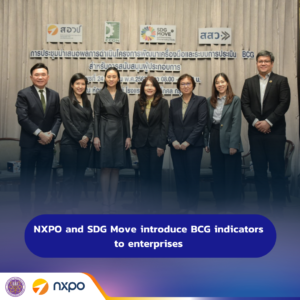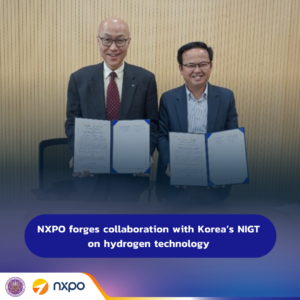Thailand is poised to strengthen its position in the global semiconductor industry through a dynamic collaboration between government, industry, and academia. Leading the charge, Mr. Permsuk Sutchaphiwat, Permanent Secretary of the Ministry of Higher Education, Science, Research, and Innovation (MHESI), presided over a landmark signing ceremony and Campus Tour event on February 6 at the Berkeley Hotel Bangkok.
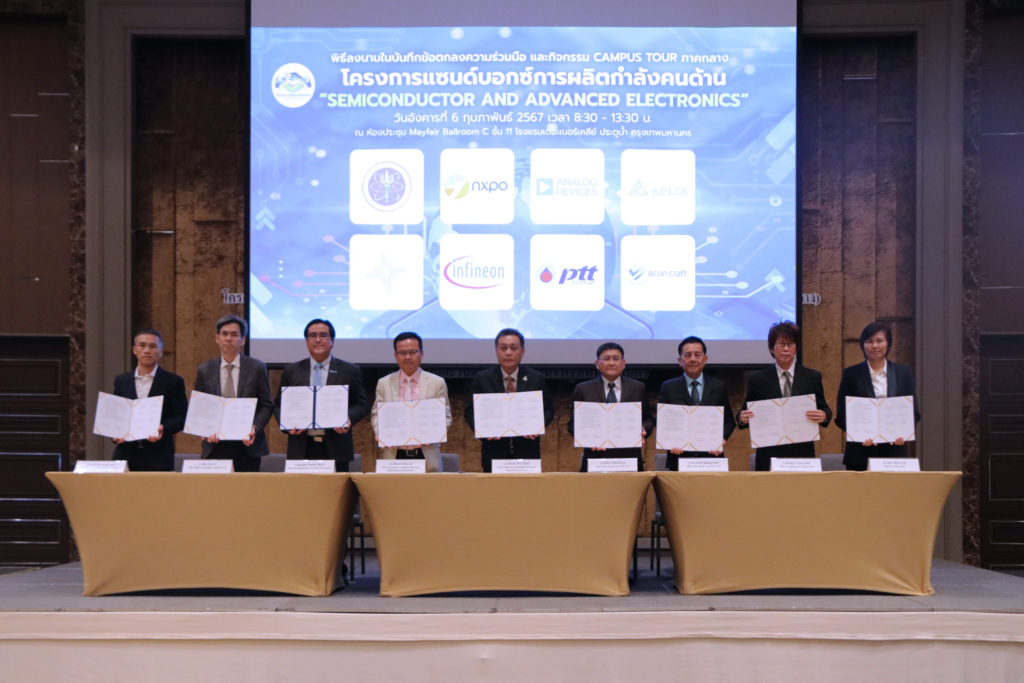
This event marked the official commencement of the “Semiconductor and Advanced Electronics” workforce development project, a national endeavor in collaboration with 17 leading Thai universities and world semiconductor leading universities aboard. Directed by MHESI, in conjunction with the Office of the National Higher Education Science Research and Innovation Policy Council (NXPO) and the Thailand Microelectronics Technology Center (TMEC), the initiative brings together seven leading private sector companies in Thailand’s semiconductor and advanced electronics industry.
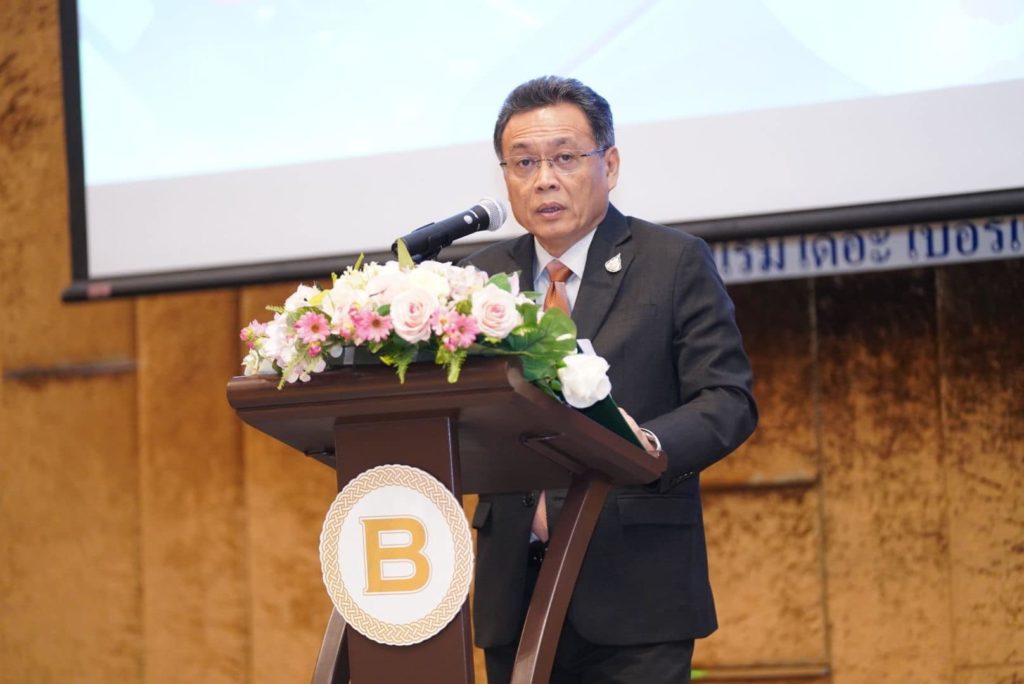
At its core, the initiative aims to incubate a highly skilled workforce tailored to meet the evolving demands of the semiconductor industry. Moreover, it seeks to enhance Thailand’s competitiveness in the global semiconductor market, thereby attracting increased investments from international stakeholders.
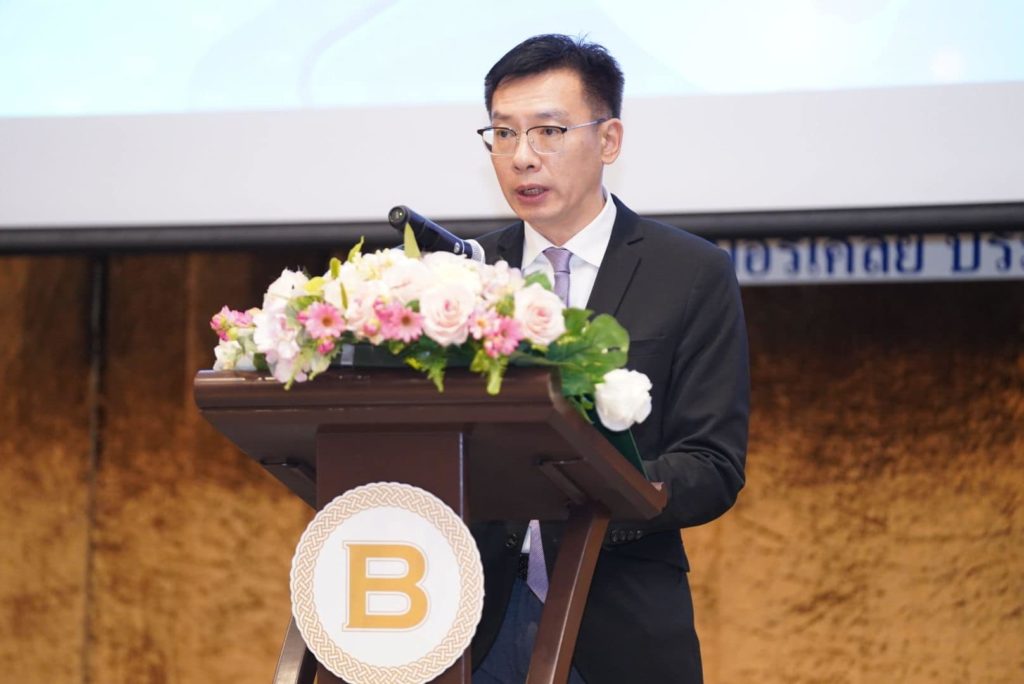
Professor Supachai Pathumnakul, Deputy Permanent Secretary of MHESI, emphasized the strategic importance of this collaboration in driving Thailand’s semiconductor industry forward. He underscored the government’s commitment to fostering synergistic partnerships between government, industry, and academia to cultivate a workforce equipped with the requisite skills and expertise to thrive in the semiconductor sector.
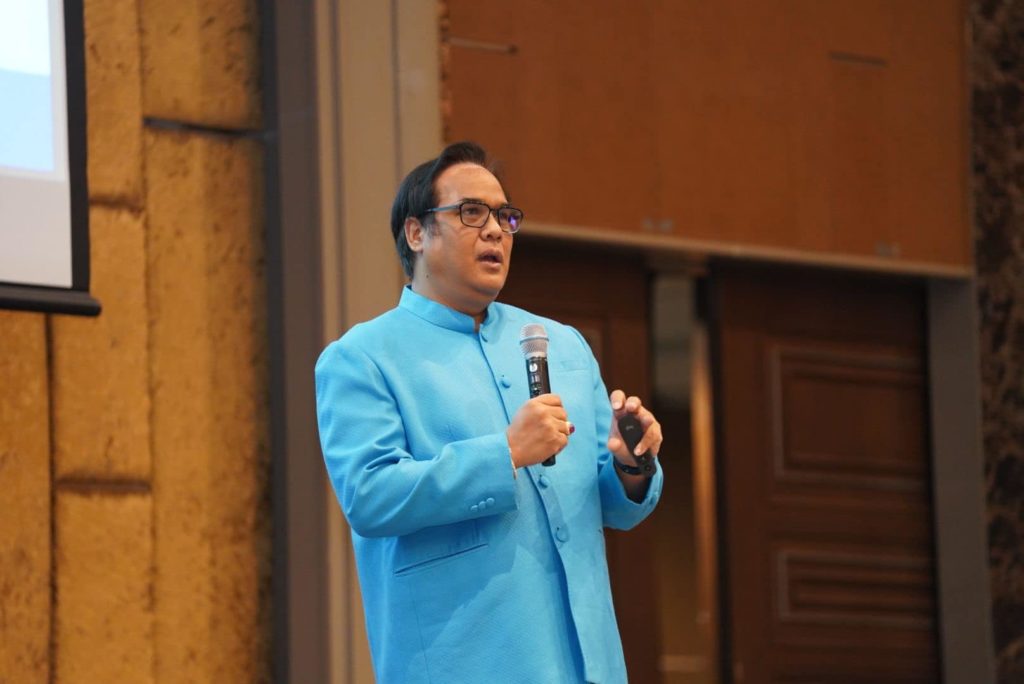
Mr. Punpermsak Aruni, Director of Higher Education, Science, Research and Innovation Drive and Development Division, echoed Professor Pathumnakul’s sentiments, stressing the urgent need to enhance Thailand’s semiconductor competitiveness. He highlighted the significance of developing a skilled talent pool capable of meeting industry demands and propelling Thailand’s semiconductor sector onto the global stage.
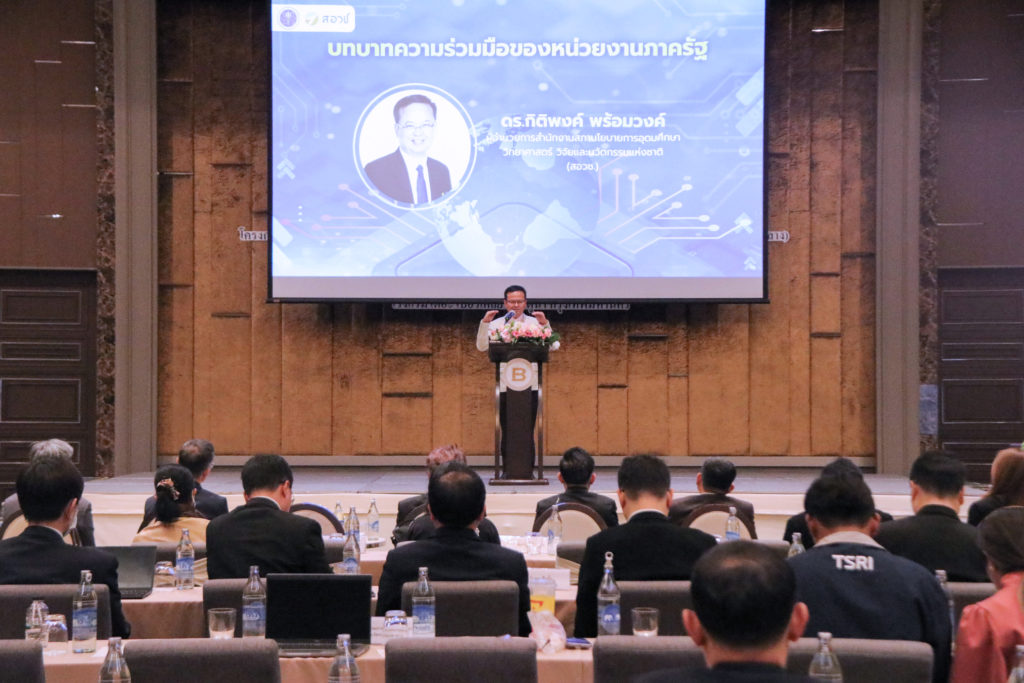
Dr. Kitipong Promwong, President of NXPO, also commented on the collaborative efforts, stating, “I am pleased to see this workforce development project underway. It signifies the collaboration between the public and private sectors to create new industries to adapt to changing industrial structures.”
Dr. Promwong continued, “The semiconductor sector is particularly intriguing as it can drive Thailand’s adaptation to change. One challenge is how we can attract young people to join the project. Therefore, we must create an environment where young people feel challenged to learn. The curriculum of this workforce development project is a key element that can unlock this challenge. It allows for 100% co-creation in designing the curriculum, involving stakeholders from the government, private sector, universities, and related organizations. We need to look beyond existing regulations and unlock any constraints to foster flexibility. What matters most is that we are tackling difficult challenges, so we must unite our efforts tightly. Our vision must lead more than the processes do.”
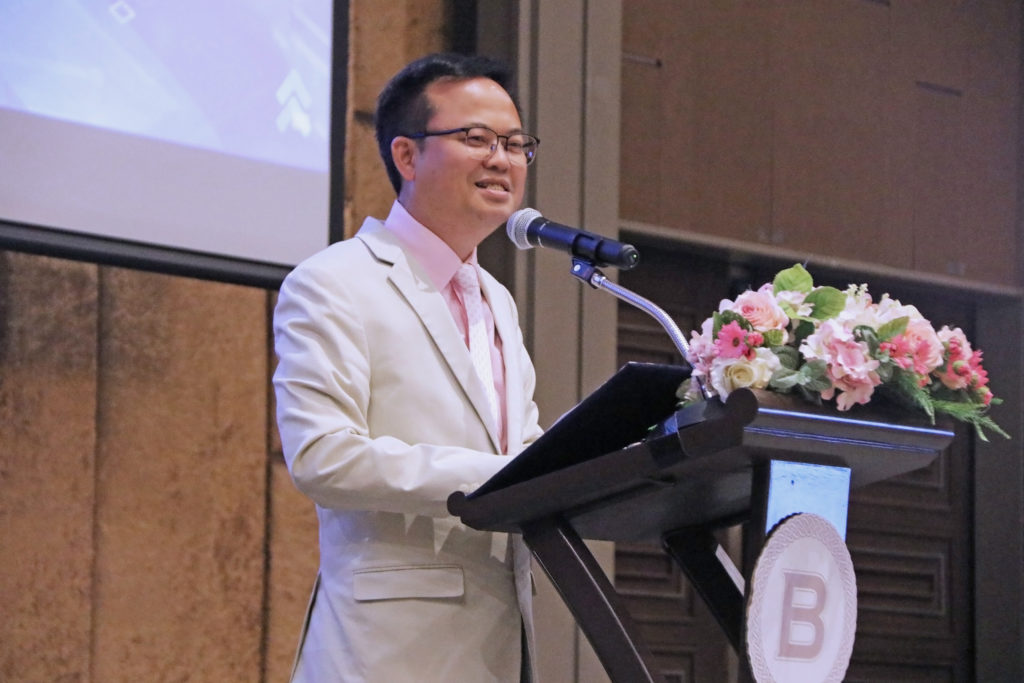
The initiative kicks off with comprehensive workforce incubation programs, including specialized cooperative education programs and internships, designed to provide students with practical skills and industry exposure. These programs aim to seamlessly integrate graduates into the semiconductor industry, bolstering Thailand’s position as a key player in the global semiconductor landscape.
This collaborative effort between government, industry, and academia heralds a new era of growth and innovation for Thailand’s semiconductor industry. As Thailand embarks on this transformative journey, it sets a precedent for effective collaboration and strategic planning in driving industry advancement and economic growth.
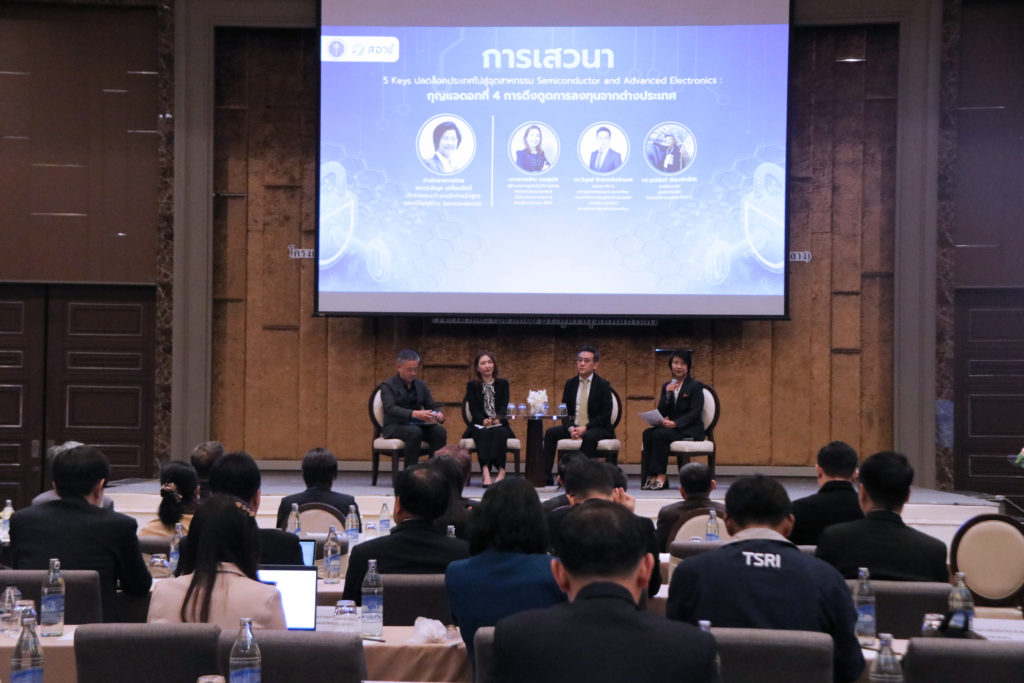
For further inquiries about this transformative initiative, please contact the Office of Permanent Secretary to Minister of Higher Education, Science, Research, and Innovation and Office of National Higher Education Science Research and Innovation Policy Council (NXPO).
Companies Involved in the Consortium:
Analog Devices (Thailand) Company Limited
Delta Electronics (Thailand) Public Company Limited
Hana Microelectronics Public Company Limited
Hana Semiconductor (Ayutthaya) Company Limited
Infineon Technologies (Thailand) Company Limited
PTT Public Company Limited
Silicon Craft Technology Public Company Limited
University Consortium comprising over 17 leading universities in Thailand


